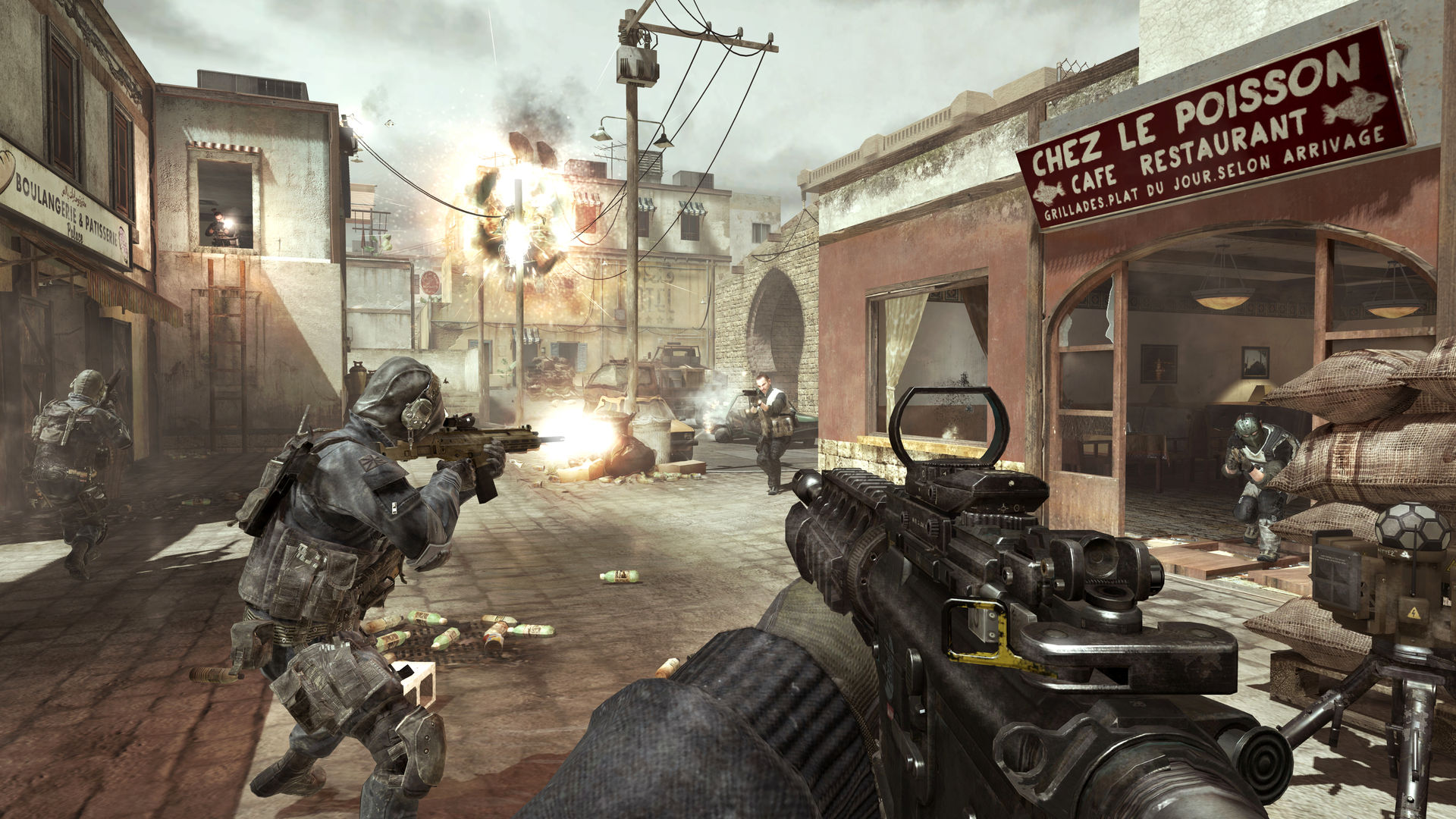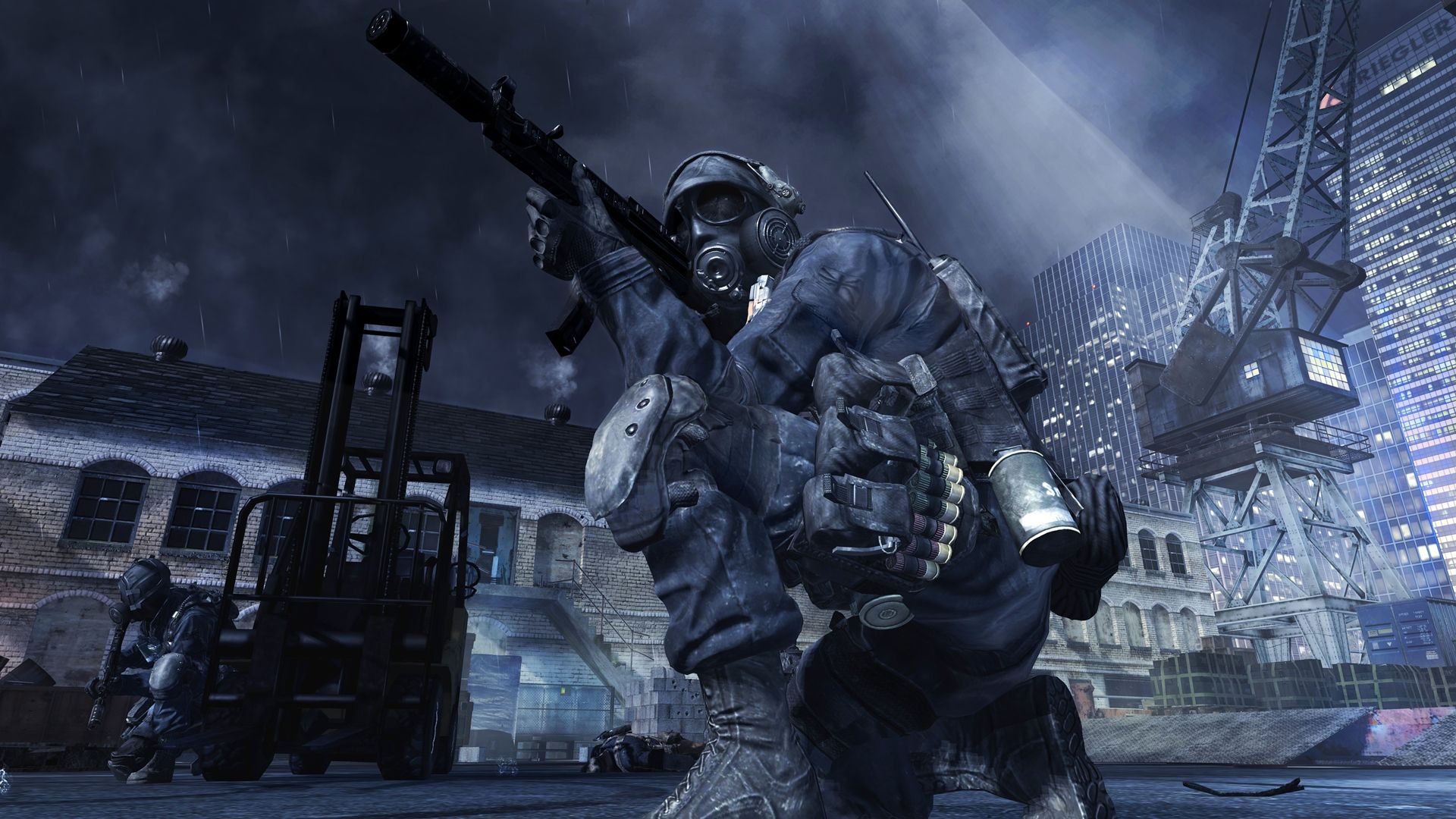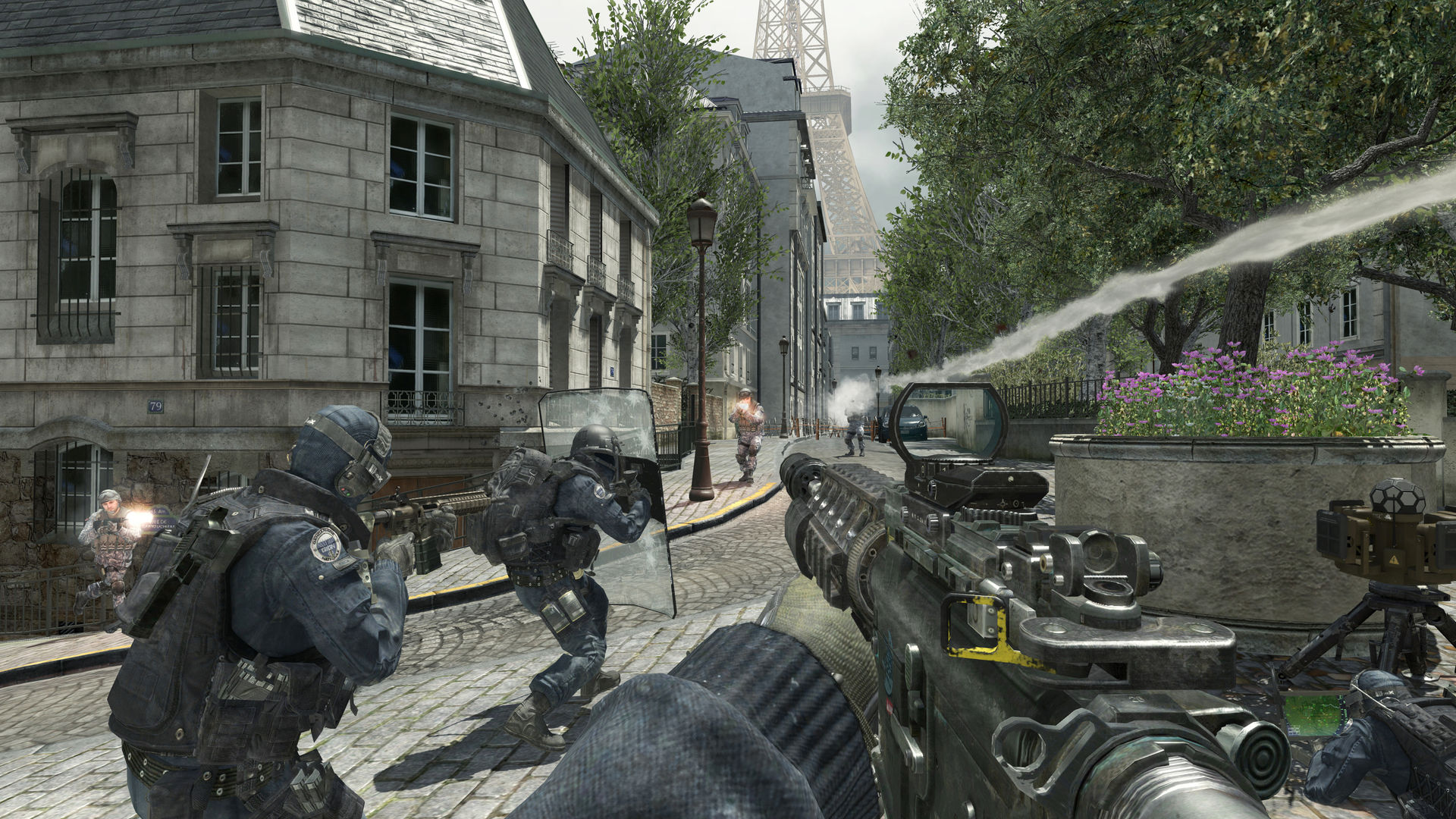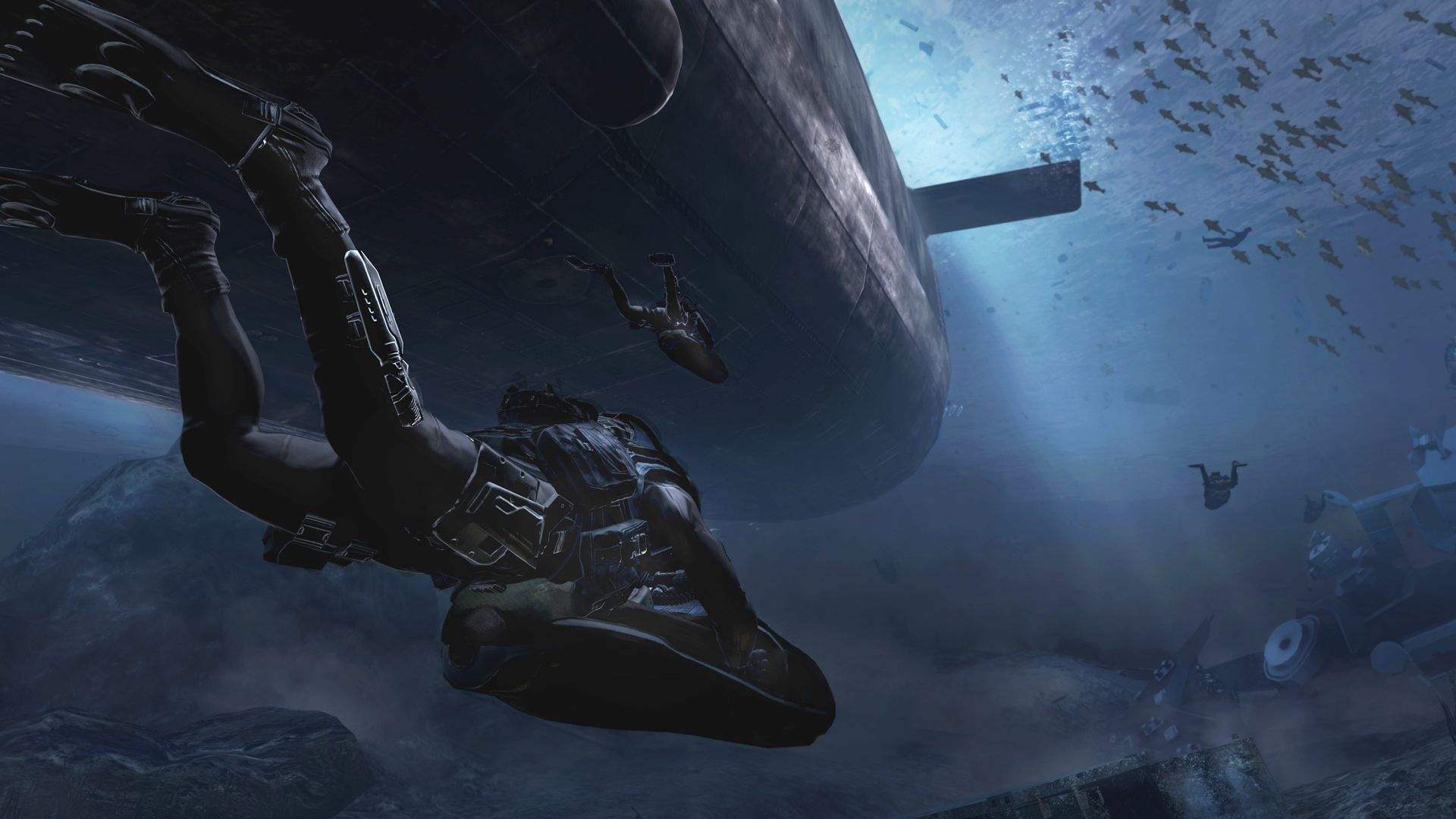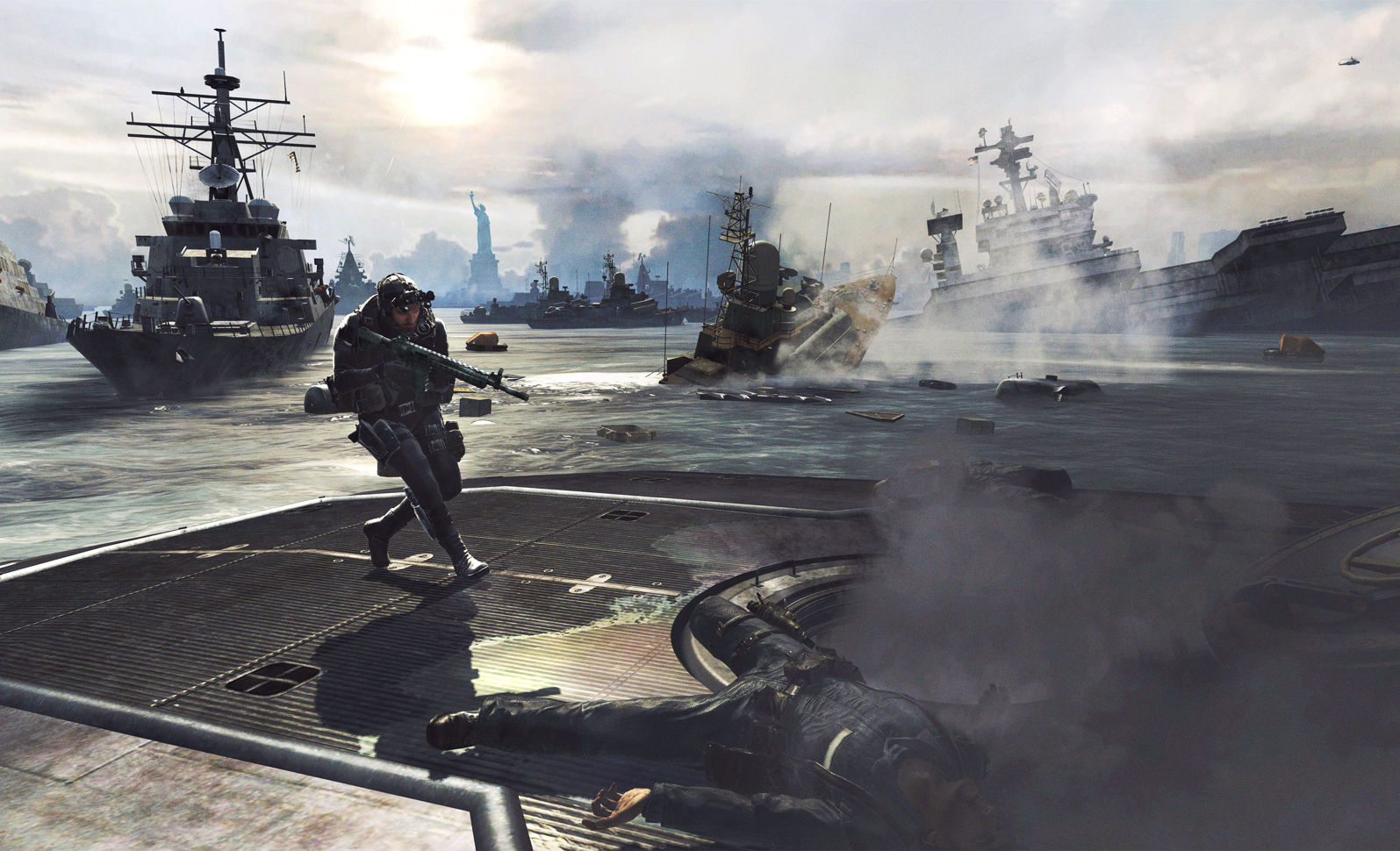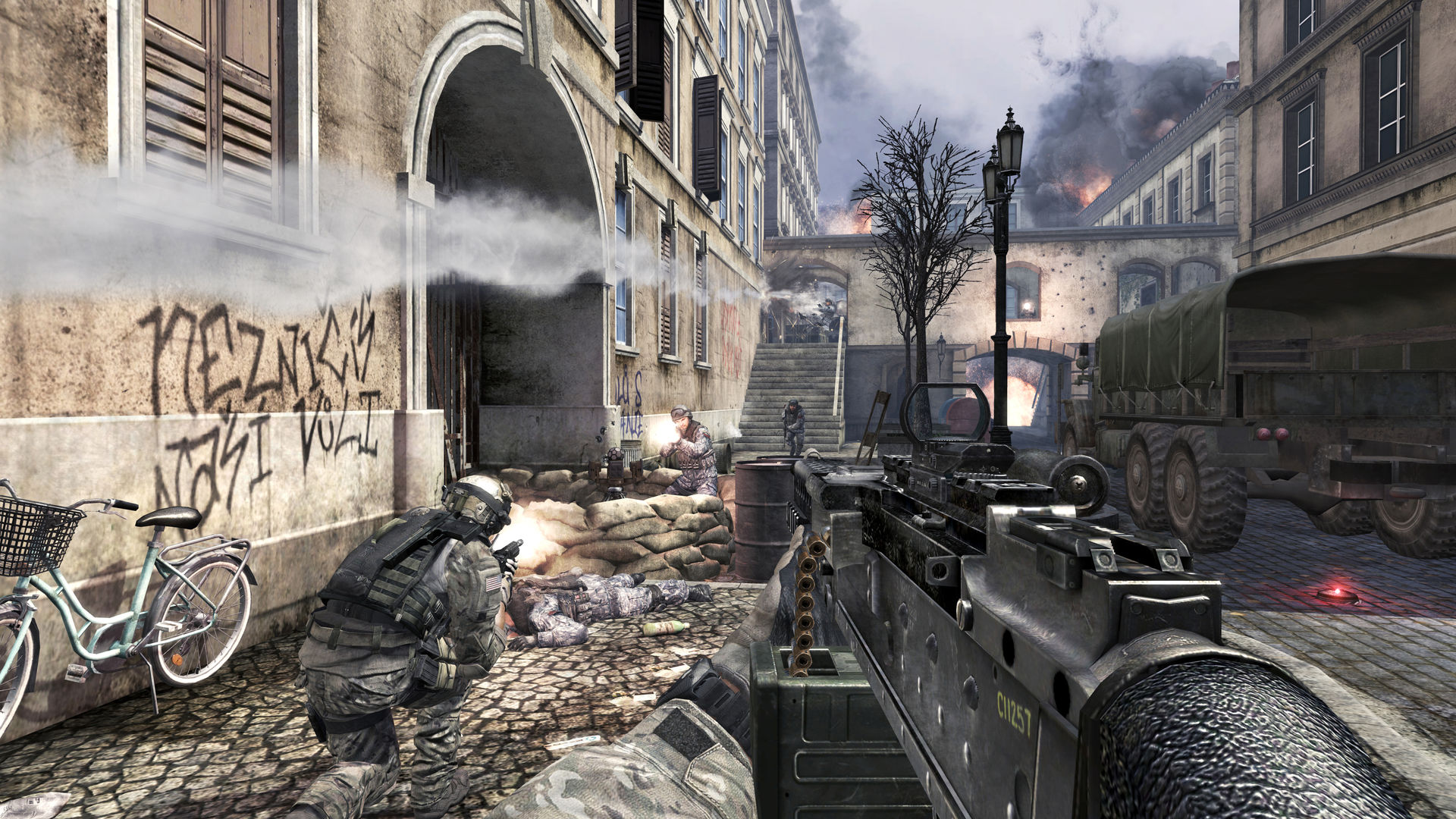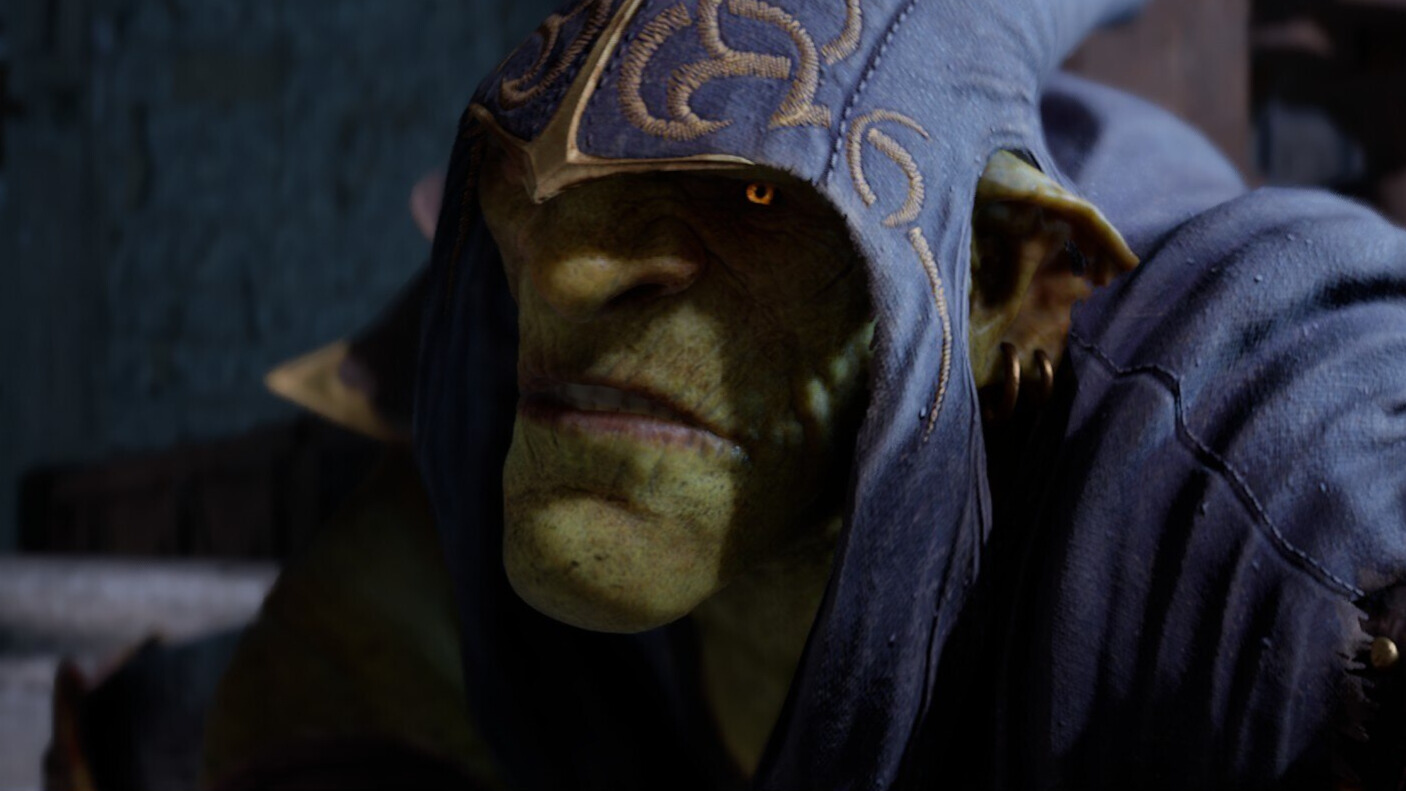Call of Duty was saved against the odds when Infinity Ward imploded
Modern Warfare 3 co-director Glen Schofield tells the dramatic story of its making first-hand.
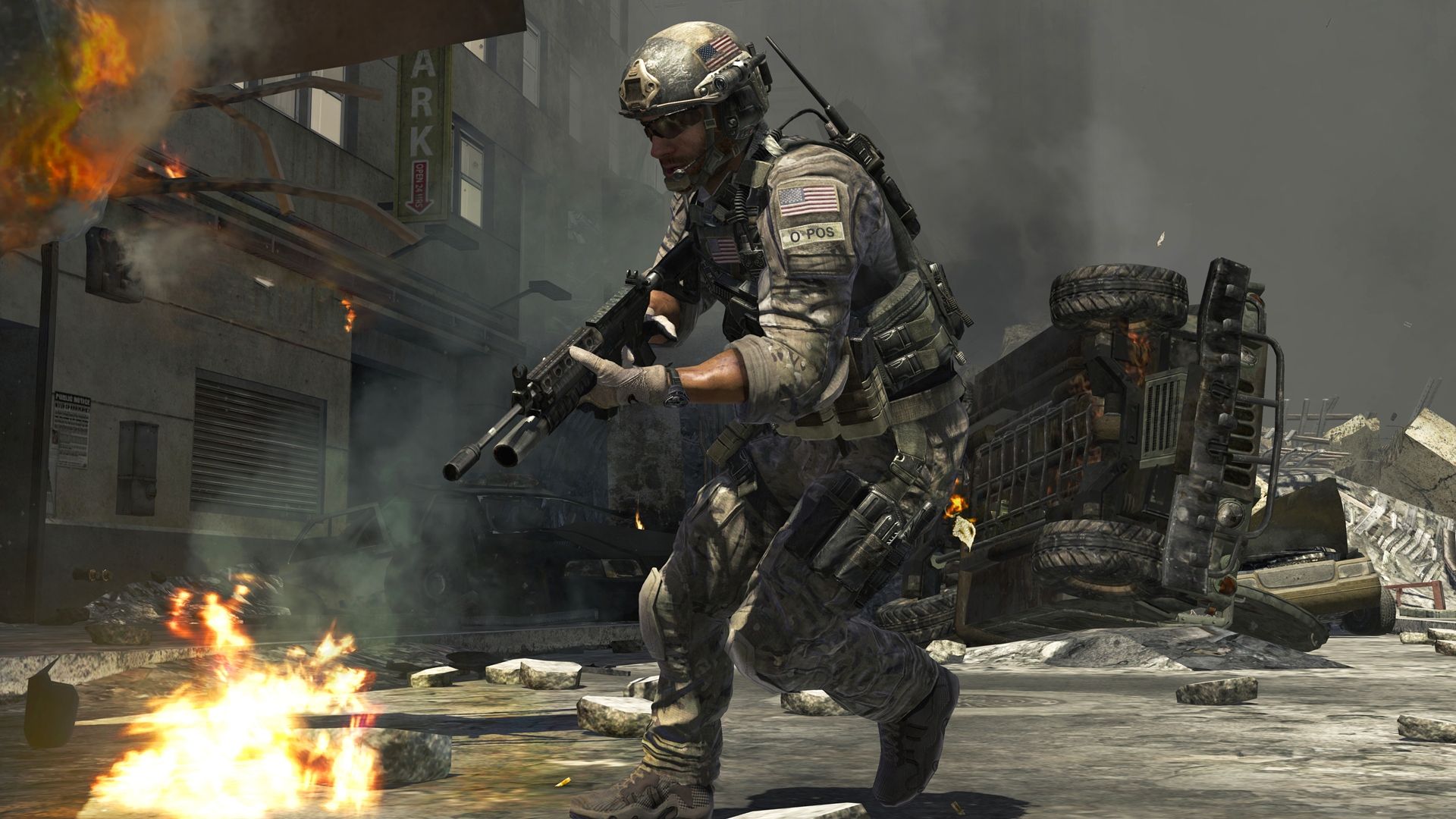
Keep up to date with the most important stories and the best deals, as picked by the PC Gamer team.
You are now subscribed
Your newsletter sign-up was successful
Want to add more newsletters?

Every Friday
GamesRadar+
Your weekly update on everything you could ever want to know about the games you already love, games we know you're going to love in the near future, and tales from the communities that surround them.

Every Thursday
GTA 6 O'clock
Our special GTA 6 newsletter, with breaking news, insider info, and rumor analysis from the award-winning GTA 6 O'clock experts.

Every Friday
Knowledge
From the creators of Edge: A weekly videogame industry newsletter with analysis from expert writers, guidance from professionals, and insight into what's on the horizon.

Every Thursday
The Setup
Hardware nerds unite, sign up to our free tech newsletter for a weekly digest of the hottest new tech, the latest gadgets on the test bench, and much more.

Every Wednesday
Switch 2 Spotlight
Sign up to our new Switch 2 newsletter, where we bring you the latest talking points on Nintendo's new console each week, bring you up to date on the news, and recommend what games to play.

Every Saturday
The Watchlist
Subscribe for a weekly digest of the movie and TV news that matters, direct to your inbox. From first-look trailers, interviews, reviews and explainers, we've got you covered.

Once a month
SFX
Get sneak previews, exclusive competitions and details of special events each month!
It's hard to think of a more charged environment in which to start work on a game. In the wake of 2009's Modern Warfare 2, the studio that invented Call of Duty had imploded. A power struggle between Activision and Infinity Ward's leaders, Jason West and Vince Zampella, had led to the expulsion of the latter two men from the company.
"I was speechless," West told Vanity Fair in 2011. "In my head, this was the moment when everyone was supposed to go home in a limousine. Instead, we were eating the seed corn and they were taking all the money." West and Zampella sued Activision for wrongful termination; Activision countersued, alleging the pair were "small-minded executives" motivated by "envy and personal greed".
Ultimately, the publisher settled with West and Zampella ahead of a trial. But the damage was done. Many of Infinity Ward's veterans had followed their bosses to Respawn, a new EA-funded outfit that would go on to make Titanfall, Apex Legends and Star Wars Jedi: Survivor.
Meanwhile, there was a yawning hole at the centre of the studio that was supposed to follow up two of the biggest blockbusters of all time. Infinity Ward was in no fit state to deliver on the third part of Modern Warfare, an FPS series that had consistently offered escalating bombast and never-before-seen thrills.
In a bid to save the project, Activision turned to another pair of powerful leaders: Glen Schofield and Michael Condrey. Fresh off the success of Dead Space, Schofield and Condrey had set up Sledgehammer within Activision. For six months, they and two-dozen former Dead Space colleagues had been working on Fog of War, a Call of Duty spin-off that pulled on their experience in third-person action and horror.
"We wanted to make a scary version of Vietnam," Schofield says. "And not just scary, we wanted intense battle that was personal, stuff you've never seen before. We were really psyched about having you go through tunnels. Sometimes you were shooting in the dark."
"We wanted to make a scary version of Vietnam."
Glen Schofield
"We wanted to make a scary version of Vietnam," Schofield says. "And not just scary, we wanted intense battle that was personal, stuff you've never seen before. We were really psyched about having you go through tunnels. Sometimes you were shooting in the dark."
Keep up to date with the most important stories and the best deals, as picked by the PC Gamer team.
Now, Activision was asking them to abandon that game and steer Modern Warfare toward the light. It was too good an opportunity to miss. "Our first meeting with Infinity Ward was about story," Schofield says. "I needed to know what the story was and who was working on it. Because eventually I was going to take it over."
At the time, Call of Duty campaigns were a pop cultural force to be reckoned with—breathtaking geopolitical thrillers which had produced real water cooler moments. Think of Modern Warfare's front-row seat to a nuclear blast, or its sequel's terrorist attack at an airport.
Both had come from Infinity Ward. But sitting down with the diminished team, Schofield discovered that the studio's appetite for crafting twisty plots had left the building with Ward and Zampella. "Finally, one of the guys from Infinity Ward said, 'You guys do the story. I'm not interested in doing a story.' So they left. We're like, 'OK, it's over, I guess.' And I started writing the story."
Modern Warfare 2 had been defined by house-to-house fighting in the US capital, after a surprise Russian invasion of the American east coast. "And so everybody wanted me to start in Washington DC, with the aftermath and what's going on," Schofield says. "And I'm like, 'No, I don't need to show it. They would take over New York.'"
Besides any strategic or propaganda advantage the Russians would gain by taking New York, Schofield wanted to stage Modern Warfare 3 somewhere he knew. "I lived in Manhattan, I lived in Brooklyn for four years," he says. "I went through that damn tunnel so many times that I just wanted to blow it up."
These guys had just made videogame gold.
Glen Schofield
In the finished game, you swim through a submerged Brooklyn Battery Tunnel with Delta Force. At one point, your headlamp illuminates a sunken gas tanker belonging to Schofield and Condrey Construction Ltd. The faces of Sledgehammer's two founders are emblazoned on the vehicle's side.
While Schofield was evidently keen to leave his stamp on the series, he's quick to praise the remaining Infinity Ward staffers for their role in the project. "These guys had just made videogame gold. And you don't know who made what, but most of the people that left were the senior people," he says. "They left a lot of the younger generation, but they were good. They were really good, dude."
In most cases, Infinity Ward's developers went on to create Modern Warfare 3's multiplayer component. Although they did take ownership of one part of the campaign. "I think they did a level in the singleplayer, the one where they blow up the mother and child," Schofield says. "That was their level."
Davis Family Vacation positioned you as a father, filming his American family on a street in London as they set out to see Big Ben. The daughter, a young girl, spun happily into a flock of pigeons as a truck exploded on camera, killing all three civilians and releasing a deadly chemical. It was typical Infinity Ward—displaying the studio's capacity for both perspective-hopping creativity and shameless shock value.
"There was some crazy stuff," Schofield says. "One time they killed off one of our characters, and we're like, 'You can't just do that.' That was all in this one level." Later, Sledgehammer killed off one of Infinity Ward's most beloved characters, Soap MacTavish. "That's kind of infighting," Schofield says, before correcting himself. "It wasn't infighting. Creativity can come out of conflict."
On release, Modern Warfare 3 was widely acclaimed. Even PC Gamer, which had struggled to warm to CoD's increasingly linear cinematic storytelling, grudgingly approved of the campaign as "an arcade rail shooter, except you can control your legs a bit". Sales were stellar—record-breakingly so—and Schofield fondly remembers winning Game of the Year at the DICE Awards, voted for by industry peers.
We were sort of in charge, but they were the holders of the vision at that point, and it had to be passed on
Glen Schofield
Perhaps the greatest testament to Sledgehammer's success was the sense that nobody seemed to notice the studio was there. A new outfit had stepped into the breach to replace the hottest FPS team in the world, and the fact went almost unremarked upon. That might be a damning indictment of gamers' inability to keep track of the creators of their favourite games. But nonetheless: disaster had been averted, and Sledgehammer took its place in the rotation of core Call of Duty teams—a spot it holds to this day.
In the end, Schofield even won over Infinity Ward. "We had an afterparty, and a couple of them came up to me and a little circle of the guys and just said, 'You did a really good job,'" he says. "And I appreciated that. Because there was friction here and there. We were sort of in charge, but they were the holders of the vision at that point, and it had to be passed on."
Jeremy Peel is an award-nominated freelance journalist who has been writing and editing for PC Gamer over the past several years. His greatest success during that period was a pandemic article called "Every type of Fall Guy, classified", which kept the lights on at PCG for at least a week. He’s rested on his laurels ever since, indulging his love for ultra-deep, story-driven simulations by submitting monthly interviews with the designers behind Fallout, Dishonored and Deus Ex. He's also written columns on the likes of Jalopy, the ramshackle car game. You can find him on Patreon as The Peel Perspective.
You must confirm your public display name before commenting
Please logout and then login again, you will then be prompted to enter your display name.
